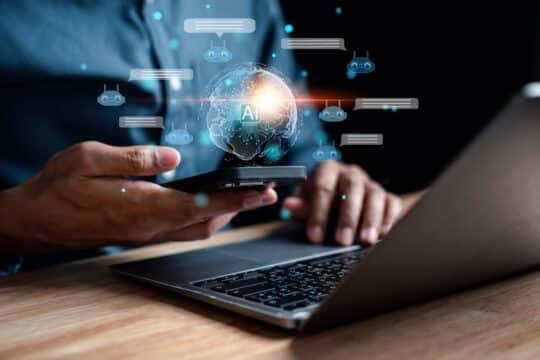Before we can dive into what teaching strategies a 21st century educator should use, we must first take a look at what 21st century learning is. The term “21st century learning” has been used to refer to abilities students must master, such as problem-solving skills, critical thinking skills, and digital literacy. Some refer to it as the ability to collaborate, communicate, and demonstrate skills that will ultimately help students navigate their way in the future. The idea of what 21st century learning is is open to interpretation and controversy. But what we can say is that today’s educators need to use teaching strategies to equip students with the characteristics and skills that will help them live in this ever-changing technological world. The only way that we can do that is by having our own 21st century characteristics and skills. Here are five of the most important teaching strategies 21st century educators should have in today’s classroom.
1. Teaching Strategies to Be Able to Teach to All Learners
Being a 21st century educator means having the ability to be able to teach and reach all learners. That means the ability to differentiate learning so that all students are able to learn using their own unique style and/or by their ability or readiness level. In today’s classrooms, educators have learned that students learn best when they are taught to their own unique style and ability. Howard Gardner said it best when he introduced the world to the multiple intelligence theory. He said that everyone falls into one or more of these eight intelligences. An effective 21st century educator must have the ability to teach and reach each characteristic and skill of every student in the classroom.
2. Be Able to Implement Technology
The ability to not only learn about the new educational gadgets that will help students learn better and faster, but to also have the ability to know how to use and implement the gadget within the classroom is an essential skill of a 21st century educator. An effective educator will have the know-how and the wherewithal of how to efficiently implement and incorporate technology into the classroom in a way that will be productive for all students.
3. Be Able to Foster Student Relationships
In a digital world where students can count the number of friends that they have by the likes they get on Facebook and Instagram, it is essential now more than ever for educators to be able to foster heathy relationships among their students. An effective teacher will have the ability to facilitate interpersonal relationships within the classroom so that students will have a sense of community and be able to communicate with their peers on a higher level than just social media.
4. Be Forward Thinking
A 21st century educator is able to anticipate the future and plan for it. They are able to push their students to ensure that they will be able to navigate their way through this ever-changing technological world. They have the ability to prepare students for the unknown based on current trends and technology.
5. Be Able to Embrace Change
The ability to embrace change is an essential characteristic of a 21st century teacher. With the rapid changes in technology and the way that students learn, educators must be able to embrace change and adapt to it. Technology changes daily, as do new teaching strategies, testing techniques, and the way we are able to learn and communicate with others. An effective teacher living the 21st century has the ability to adapt to anything and everything as well as embrace it.
In short, if we as teachers take the time to foster these characteristics that are necessary to be an effective 21st century educator, then we have done our job in helping our students have the ability to live and navigate in a world that is forever changing. Having the ability to embrace technology or whatever may come our way, anticipate the future of our students, teach to reach all learners, have the ability to foster real, authentic relationships in a time where technology has taken over, as well as be a life longer learner, then we have done our job effectively.




